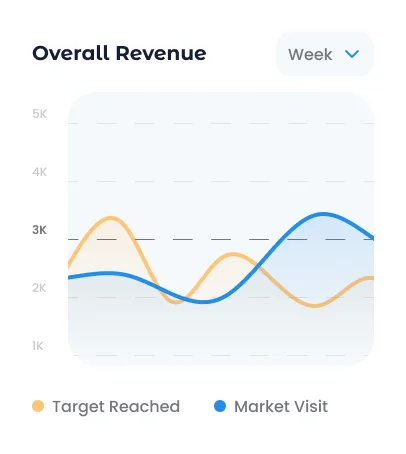Boost Your B2B Success with Expert Fulfillment Services!
Looking to take your B2B operations to the next level? Harness the power of professional B2B fulfillment services to streamline your supply chain and exceed customer expectations.
Request a Callback
What is B2B fulfillment Service?
Business-to-business (B2B) fulfillment is an essential service for businesses that need to get their products into the hands of their clients, wholesalers, distributors, and retailers quickly and efficiently. From warehousing and inventory management to order processing and shipping, our services provide a comprehensive solution to ensure your products reach their destination in a timely and cost-effective manner.


What We Offer
Warehousing
We provide secure, climate-controlled, and monitored warehousing space to store your inventory.
Order Processing
We process orders quickly and accurately, ensuring that your customers receive the items they ordered as soon as possible.
Shipping
We can ship your products anywhere in the world. We have a variety of shipping methods, including standard ground, expedited, and international shipping.
Returns
We provide an easy return process for customers who are not satisfied with their purchase.
Customer Service
Our experienced customer service team is available to answer questions about your eBay store and the products you sell.
What We Offer
We provide everything you need to keep your business running smoothly. We maintain the highest standards of integrity and customer service. With our expertise and experience, you can trust that your orders are safe. Get in touch with us today to learn more about our services and how we can help you.

Warehousing and distribution
We provide flexible and reliable warehousing, order processing and distribution solutions that help you manage your inventory more effectively and reduce costs.

Inventory management
Our inventory management system helps you keep track of inventory levels and ensure that your customers get the products they need promptly.

Automated order tracking
Our automated order tracking system allows you to keep track of orders, monitor delivery status, and provide customers with real-time updates on their orders.

Customer service and support
Our customer service and support team are available 24/7 to help you with any questions or concerns about our services.
B2B Order fulfillment Process with Automation
Automating the process can help ensure your orders are processed quickly and correctly and enable you to provide your customers with the best possible service. The Payless fulfillment service makes it easy to streamline your order fulfillment process. We provide comprehensive order tracking, so you can keep track of every step of the order process, from when the customer places an order to when it arrives at the customer’s doorstep. Our automated fulfillment process allows you to manage inventory and stock levels easily.
We offer real-time updates on inventory levels and stock availability, so you can make sure you always have the products your customers need. Payless also offers a range of features to help make your order fulfillment process more efficient. Our advanced order management system allows you to manage orders from multiple sources, from your website to your mobile app. We also provide automated order tracking, so you can keep an eye on the progress of your orders and make sure they arrive on time.
At Payless, we understand the importance of customer satisfaction. We offer a range of customer service tools, including online customer service portals and automated email notifications, to ensure your customers are satisfied with the service they receive.






Why Choosing Us Is the Right Choice
Payless is the right choice if you’re looking for a fulfillment Service for your business. Our dedicated professional team has the expertise and knowledge to handle all business requirements.
We always use reliable, quality equipment and technology. We are constantly monitoring our systems to ensure that they run optimally so our customers can get the best results possible. We also utilize the latest technologies to give our customers access to the most efficient and up-to-date services.
Our team is highly trained and certified in the industry. Our staff profoundly understands the processes involved in B2B fulfillment services, from order processing to shipping and delivery. We also train regularly to stay up-to-date on the latest trends and technologies.
We prioritize customer service. We strive to provide exceptional customer service, from order processing to timely delivery. Our team is always available to answer any questions or concerns customers might have and to offer assistance when needed.
We are committed to providing our customers with the highest quality products, services, and customer service. We focus on providing our customers with reliable and superior services.
Solutions for Managing fulfillment Your orders
We have put together a few solutions to help you manage your fulfillment service more effectively.
Streamline Your Processes
Streamline processes by implementing automated systems that reduce manual labor and increase productivity. It can include using better software, integrating data, and using advanced analytics to understand your business better.
Use Third-Party Logistics Providers
Third-party logistics providers can help you manage your fulfillment service more effectively and efficiently.
They can help you with order fulfillment, warehousing, shipping, and returns. It can reduce costs, improve customer service, and help you meet customer demand.
Utilize Automation
Payless also offers fulfillment services from third-party vendors. These services give sellers access to a wide range of vendors, allowing them to pick and choose the best option for their business. This system also offers sellers access to the most competitive prices on shipping, ensuring they get the best value for their money.
Leverage Technology
Technology is a great way to improve the efficiency of your fulfillment service. Use barcode scanners, GPS tracking, and RFID tags to monitor and manage inventory. It can help you stay on top of customer demand and provide better service.
Stay Organized
Organizing is critical to operating a B2B fulfillment Service. Monitoring orders, inventory, and payments can help you keep track of the process and guarantee that your customers are satisfied.
Let Us Take
Care of it.
With Paylessprepcenter, you’re getting the best in-class fulfillment service for large, bulky, heavy, and high-value eCommerce products.
FAQs
We have an excellent track record of success and a team of dedicated professionals committed to providing the highest quality of service.
We provide a full range of services to help you optimize and manage your business. We offer custom solutions designed to fit your specific needs and budget, and our experienced team can help you find the best way to streamline your operations and drive long-term success for your business.
B2B fulfillment offers comprehensive customer service and technical support for all of our services. Our customer service team is always available to answer any questions and assist with getting started. We also offer a variety of training materials and tutorials to help you get up to speed quickly.
We offer a wide range of services, including warehousing, kitting, pick-and-pack, inventory management, and order management. We also provide custom solutions tailored to your specific needs.
Our team can handle orders quickly and accurately, no matter the size. We strive to deliver orders within 24 hours.
B2B orders are usually placed by businesses, while consumers place B2C orders. Additionally, B2B orders tend to involve larger quantities, higher prices, and more complex shipping and payment processes than B2C orders. B2B orders often require additional negotiations and paperwork, while B2C orders are generally more straightforward.